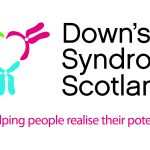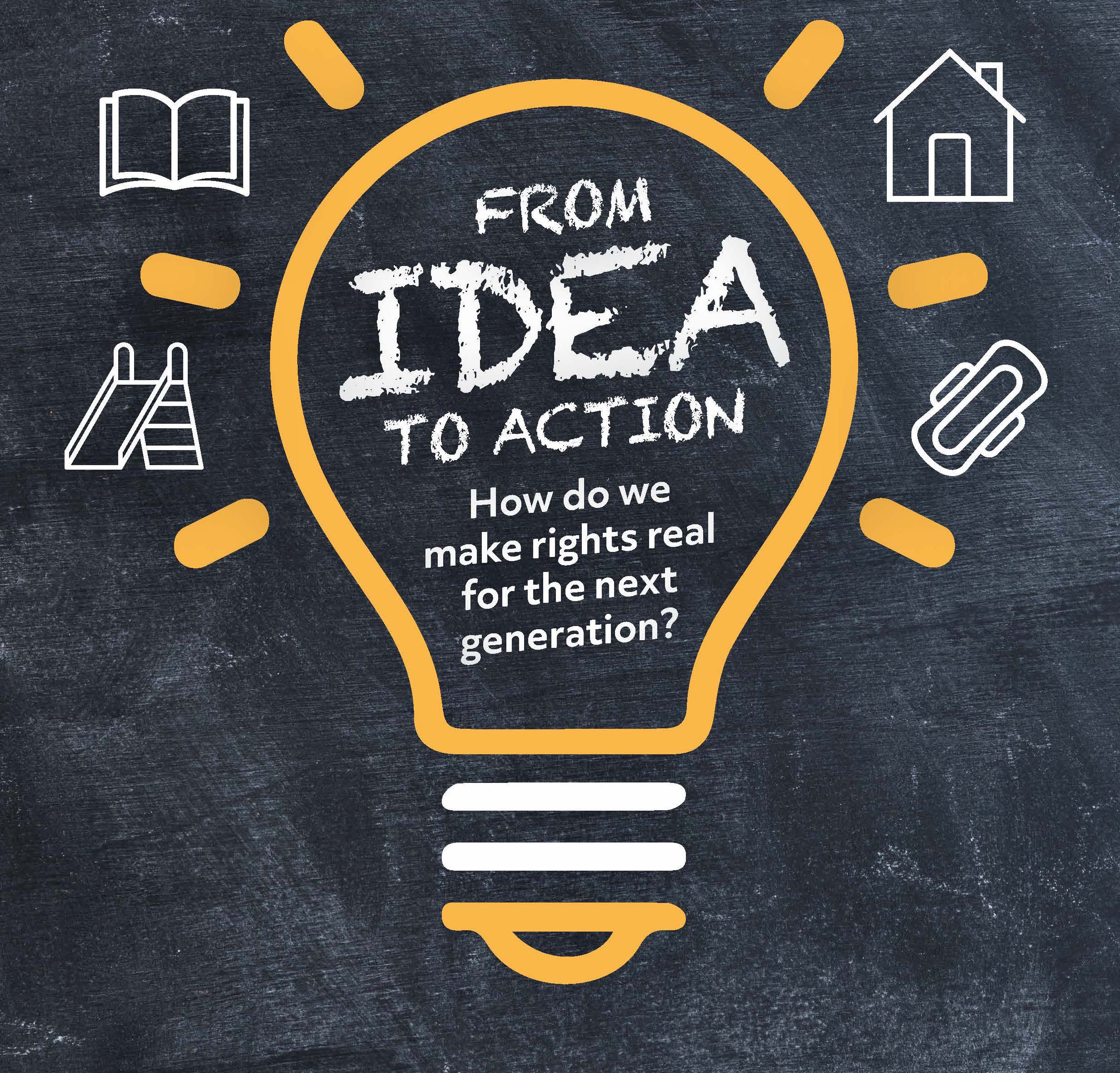"We want to kick-start a movement for change"
Eddie McConnell explains how Down’s Syndrome Scotland’s new campaign will champion more opportunities and support for those living with an extra chromosome in our latest member’s spotlight
It is estimated that approximately 41,700 people with Down’s syndrome live in the UK and more than 700 babies are born with the condition every year.
Down’s Syndrome Scotland is the only charity in Scotland solely dedicated to supporting people with Down’s syndrome and their families. We work with everybody and anybody to make sure people with Down’s syndrome reach their fullest potential.
We have two main services we provide - our Family Support Service and our Achieving Better Communication (ABC) programme.
Our Family Support Service is delivered by a team of five who are located across Scotland and provide information and support to families, to people with Down’s syndrome and the wide range of professionals who support them. Our Family Support Service Officers answer enquiries and offer support on a variety of topics including diagnosis, early years development, support in school, help preparing for key transitions, and health and wellbeing. They are our champions on the ground working hard to ensure that people with Down’s syndrome are supported throughout their lives, at every age and stage.
The ABC programme is hugely valued by families and their children who access tailored speech and language support. Speech and communication can be a particular challenge for children with Down’s syndrome and our ABC staff combine speech, signing and song in brilliantly engaging sessions in local communities across Scotland. These groups not only have a massive impact on the speech skills of the children who attend, they also vastly improve their confidence and provide them with practical communication skills, which become integral to their learning at school and their life beyond education.
Finally, we have nine local branches across Scotland run by amazing parents who provide activities and groups for people with Down’s syndrome of all ages and their families in their local area.
Underpinning these main services is our policy and campaigns work – vitally important in raising awareness, challenging perceptions and promoting the rights of people with Down’s syndrome in Scotland. This work is increasingly driven by people with Down’s syndrome. We have recently taken on two young women who have Down’s syndrome who are already delivering awareness training sessions.
Down’s Syndrome Awareness Week, which takes place in March and culminates with World Down’s Syndrome Day on 21st March, is a key event in our calendar and a fantastic opportunity to celebrate people with Down’s syndrome, their achievements and their talents as well as raise awareness of some of the challenges and discrimination they still face in society today. We want everyone to join us in taking a step forward to support our Down’s syndrome friends, family and colleagues.
“People with Down’s syndrome have so much to offer as colleagues, friends and family members”
This year during Awareness Week we are kicking off a movement for change, starting with four big issues that families and people with Down’s syndrome tell us need serious attention.
Enabling employment
Only 4.2% of adults with a learning disability in Scotland are in paid employment, compared with 74% of the general population. We want to address some of the barriers to employment for people with Down’s syndrome and seek out opportunities to help them find meaningful work and progress their careers.
Addressing health inequalities
We know that people with Down’s syndrome can have poorer health than others, and their life expectancy remains approximately 28 years lower than the general population. We also know that many common conditions are preventable or treatable but people with Down’s syndrome aren’t always having regular health checks.
In England, annual health checks for people with learning disabilities were introduced in 2009 and this has led to better detection of unmet, unrecognised and potentially treatable health needs and to targeted actions to address these health needs. Scotland needs to follow suit.
Supporting transitions
Children and young people with Down’s syndrome face challenges as they move through school and into adult life. Moving from primary to secondary and leaving school are key transition moments that don’t often go well. Although there are lots of resources and guidance available, there is still much work to be done to ensure that young people with Down’s syndrome consistently experience a best practice approach.
Our discussions with parents suggest that high levels of input and support from a wide range of specialists and allied health professionals in primary school reduce dramatically by the time young people arrive in secondary school. We are working with a group of teachers, allied health professionals, parents and the Scottish Transitions Forum to find ways to improve the experiences of young people and families as they move through school and into adulthood.
Living well in the community
When we ask adults with Down’s syndrome what would make their lives better they tell us they want to build friendships and have opportunities to socialise, work or volunteer. We know that people with Down’s syndrome have so much to offer as colleagues, friends, family members and neighbours and we want to make sure that everyone else can see this too.
Look out for some big announcements from us in the weeks ahead!
Although the activity planned around the Awareness Week is exciting and busy, there are key tasks in the short-term that we need to address while constantly imagining and visioning our longer-term future.
In the short term we, like most, need to consider our financial viability and ensure we are strong and stable as we head into the future. It means realigning our resources and how they are deployed; though this is easy to say but harder to live by when demand for our services is increasing and finance is getting tighter and tighter. We also plan to re-energise our fundraising strategy to establish new ways to attract income.
Over the longer term I am working closely with a great Board of Trustees, to shape and develop a strategy that is more about Down’s syndrome IN Scotland and less about Down’s Syndrome Scotland, per se. It’s an important shift in perspective and one that I know is already welcomed by our members and local branches. It’s also an invitation to anyone who wants to partner with us in making Scotland a great place to live and work for people who just happen to have an extra chromosome.
Eddie McConnell is Chief Executive of Down’s Syndrome Scotland
This article was first published in Children in Scotland magazine, Issue 196. Published in February 2020.


Children in Scotland magazine: Issue 196
Get more content from the current issue of our magazine
Buy the latest issueChildren in Scotland membership
Find out more about how membership can benefit you and your organisations
Find out more